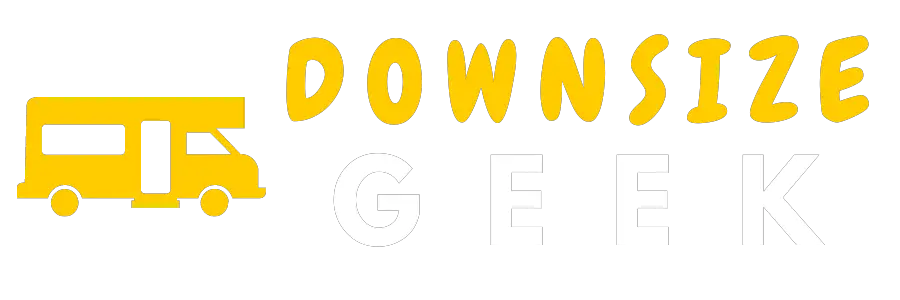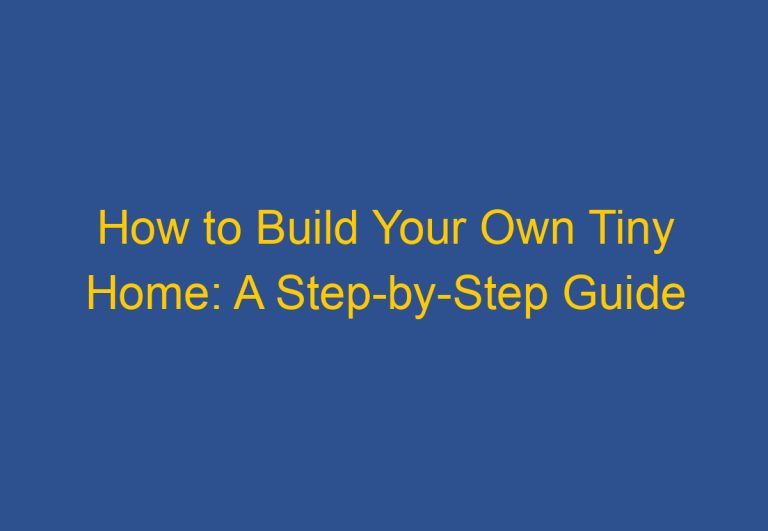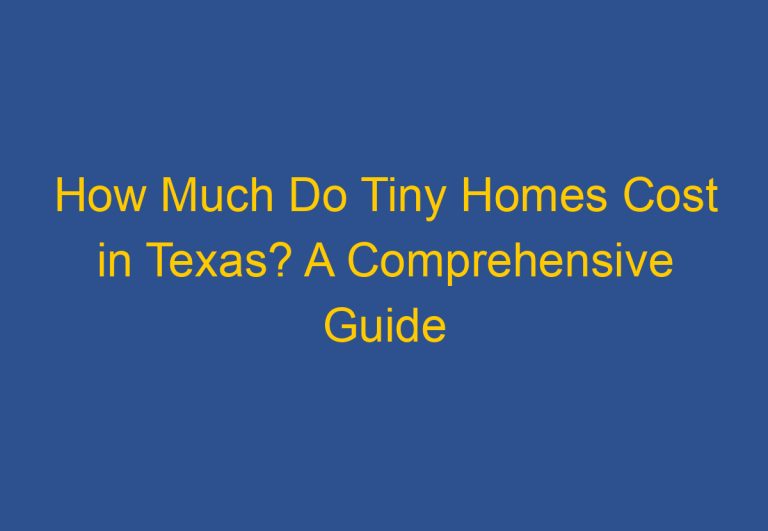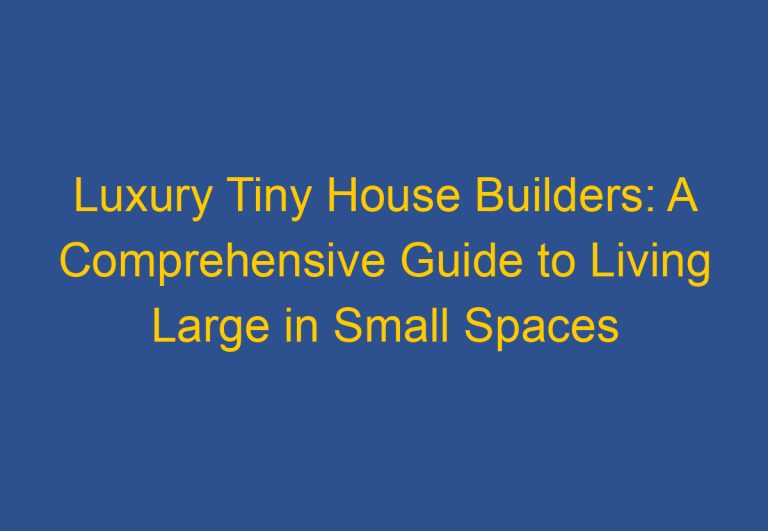How Much Does a Tiny House Cost in Canada? A Comprehensive Guide
Tiny houses have become increasingly popular in Canada in recent years, and for good reason. These small homes offer a more affordable and sustainable living option for those looking to downsize or simplify their lives. However, one question many people have is: how much does a tiny house cost in Canada?
The cost of a tiny house in Canada can vary greatly depending on a number of factors, including the size of the home, the materials used, and the location. According to Tiny House Listings, the average price of a tiny house in Canada is around $40,000, with prices ranging from $20,000 to $80,000 or more. However, it’s important to note that these prices typically do not include the cost of land, which can add significantly to the overall cost.
When it comes to the cost of a tiny house in Canada, it’s also important to consider the long-term savings that can come with living in a smaller home. With lower utility bills, reduced maintenance costs, and a smaller carbon footprint, tiny houses can be a smart investment for those looking to live a more sustainable and affordable lifestyle.
Understanding Tiny House Costs in Canada
Factors Influencing Tiny House Prices
When it comes to determining the cost of a tiny house in Canada, there are several factors to consider. The size, materials used, design, labor, builder, building code, zoning, foundation, heating, insulation, electrical, plumbing, appliances, and trailer are all important factors that can affect the final price of a tiny house.
For instance, the size of the tiny house will have a significant impact on the price. Larger houses will require more materials and labor, which will drive up the cost. Similarly, the materials used in the construction of the tiny house can also affect the price. High-end materials such as cedar or redwood will be more expensive than basic materials like plywood.
Design is another factor that can influence the cost of a tiny house. Custom designs will be more expensive than pre-designed models. Additionally, the level of customization will also affect the price. A tiny house with a lot of custom features will be more expensive than a basic model.
Average Price Range for Tiny Houses
According to research, the average cost of a tiny house in Canada varies depending on the size, materials used, and level of customization. However, a basic, self-built tiny home can cost as little as $20,000, while a more luxurious, professionally-built tiny home can cost upwards of $100,000.
The cost of a higher-end Canadian tiny home starts at around $200,000. These are the creme-de-la-creme, going beyond everyday necessities and bringing their owners a touch of luxury. The cost of a tiny house on wheels depends on several factors such as the cost of materials, the cost of labor, and its dimensions. HomeAdvisor lists the basic model price at $8,000 – $44,000, mid-range price at $45,000 – $79,000, and high-end price at $80,000 – $150,000+.
Cost Breakdown: Materials and Construction
When it comes to the cost breakdown of a tiny house, materials and construction are the two biggest expenses. Materials can account for up to 60% of the total cost, while construction can account for up to 40%.
To save on costs, some tiny house owners opt to build their homes themselves. However, this can be a challenging and time-consuming process, and mistakes can be costly. Hiring a professional builder can be more expensive, but it can also ensure that the job is done right the first time.
In conclusion, the cost of a tiny house in Canada varies widely depending on a range of factors. By understanding these factors and doing research, prospective tiny house owners can make informed decisions about the size, design, and materials of their tiny homes to fit their budget and lifestyle.
Legal and Logistical Considerations
When considering building or purchasing a tiny house in Canada, there are several legal and logistical considerations that must be taken into account. This section will cover zoning and building codes, parking and location specifics, and the long-term investment potential of a tiny house.
Zoning and Building Codes
Zoning laws and building codes vary by municipality, so it is important to research the specific regulations in the area where the tiny house will be located. In some areas, tiny houses may be considered mobile homes or accessory dwelling units, and may require a building permit or special zoning approval. It is important to consult with local authorities to ensure that all regulations are met before beginning construction or purchasing a tiny house.
Parking and Location Specifics
Parking and location are also important factors to consider when building or purchasing a tiny house. Some municipalities may require that the tiny house be parked on a permanent foundation, while others may allow it to be on wheels. It is important to research the parking and location specifics of the area where the tiny house will be located to ensure that it is legal and safe.
Tiny House as a Long-Term Investment
A tiny house can be a cost-effective and sustainable long-term investment for those looking to downsize or live a more minimalist lifestyle. However, it is important to consider the potential resale value and the cost of buying land or renting a space for the tiny house. It is also important to consider the durability and quality of materials used in construction to ensure that the tiny house will last for many years to come.
In conclusion, building or purchasing a tiny house in Canada requires careful consideration of zoning and building codes, parking and location specifics, and the long-term investment potential. By doing research and consulting with local authorities, individuals can ensure that their tiny house is legal, safe, and a sound investment for the future.
Frequently Asked Questions
What is the average cost to build a 2 bedroom tiny house in Canada?
The cost of building a 2 bedroom tiny house in Canada can vary depending on several factors such as location, materials used, and the level of customization required. On average, a 2 bedroom tiny house can cost anywhere between $50,000 to $100,000 CAD. However, this is just an estimate and the actual cost can be higher or lower depending on the specific requirements of the project.
Can you provide a cost breakdown per square foot for constructing a tiny house in Canada?
It is difficult to provide a precise cost breakdown per square foot for constructing a tiny house in Canada as the cost can vary depending on location, materials used, and the level of customization required. However, on average, the cost per square foot for building a tiny house in Canada can range from $200 to $400 CAD.
What are the expenses involved in building a winterized tiny home in Canada?
Building a winterized tiny home in Canada can be more expensive compared to a regular tiny home due to the additional insulation and heating requirements. The expenses involved in building a winterized tiny home can include insulation, vapor barrier, heating system, and energy-efficient windows. The cost of building a winterized tiny home in Canada can range from $60,000 to $100,000 CAD.
Are there affordable prefab tiny homes available for purchase in Ontario?
Yes, there are affordable prefab tiny homes available for purchase in Ontario. The cost of a prefab tiny home can vary depending on the size, design, and materials used. On average, a basic model prefab tiny home can cost between $30,000 to $50,000 CAD.
What is the price range for tiny homes currently for sale across Canada?
The price range for tiny homes currently for sale across Canada can vary depending on location, size, and level of customization. On average, the price range for a tiny home in Canada can range from $50,000 to $150,000 CAD.
Which is more cost-effective in Canada, purchasing a pre-built tiny house or constructing one from scratch?
The cost-effectiveness of purchasing a pre-built tiny house or constructing one from scratch in Canada can depend on several factors such as location, materials used, and level of customization required. On average, purchasing a pre-built tiny house can be more cost-effective compared to constructing one from scratch as it can save time and labor costs. However, the cost-effectiveness can vary depending on the specific requirements of the project.









